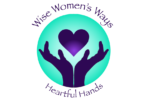Dr Ruth Cilento, whose great book “Heal Cancer” is available from http://www.ruthcilento.com/heal_cancer.htm has is stated on her site ‘This is not alternative medicine, it is the basic physiological way to go.’
Dr Cilento in ‘Heal Cancer’ (sorry my library is all packed up, having been earthquaked, so I have no idea what page) suggests these are the characteristics of those who survive terminal prognoses:
1) – Believe the diagnosis not the prognosis.
2) – Become emotionally real
3) – Have something to live for (not the fear of dying)
4) – Become part of the solution – as in don’t pay for others to ‘fix’ it.
Here is where I wonder that surely other likely conscious ‘patients’ would stop and pause.
- Why have I got cancer?
- What can I do to undo it?
- Can I help any therapy I chose or chose not to take?
- If the rates of ‘survival’ are so marginal over *not* using the dangerous orthodox treatments – why not improve my health and see what happens next?
This may well lead to simple natural solutions.
- Is CAM what we fuel ourselves?
- Is it really all that easy?
www.youtube.com/watch?v=KLjgBLwH3Wc&feature=youtube is a truly wonderful presentation for those who are not sure changing something as simple as eating (and by extension – supplements) is the answer.
The people at the Gerson Institute have taken this to a new level – and with decades of cases.
The Gerson Process is often used, and has been going strong for over seven decades. Most may arrive considered ‘terminal’. It may not be for everyone, but when willing to change . .. http://gerson.org/gerpress/
This gets to the core of my earlier questions – at what point do we all lose common sense?
How does anyone really believe by exclude all but one thing in isolation an answer will appear?
Trawling the Cochrane base yesterday I found:
- a lot of non-evidence, and
- a lot of ‘need for more’.
- Not answers.
- Not in a short time frame.
Individualized care seems outside all that is within Cochrane base.
Neither is there long range work – and as someone trying to work out options, longevity would be a factor.
The sense of urgency and the mad rush – as though every moment counts – will run decision making. I imagine that most people would go ultimately with their guts /emotions, not their intellects when on a tight time line with something that seems so overwhelming as what to do with cancer. NOW.
They are likely to go with their trusted person/source. For some this is the GP/oncologist. For others, CAM providers. I think all CAM care givers will say the same thing – we are trusted.
Before the cancer we were there and provided answers and relief. In the absence of someone who is making sense of their altered life for them – we may well be the only trusted default caring setting.
Most people look to their friends for ‘research.
‘A study in Europe on the use of CAM by cancer patients (Molassiotis, Fernadez-Ortega, Pud, et al., 2005 <http://learn.canterbury.ac.nz/mod/forum/mod/forum/discuss.php?d=111657#_ENREF_3>) showed that
- “Friends were the most common source of information (56.5%), followed by
- family (29.1%) and
- the media (28.4%).
Other sources of information included
- patient’s physician (18.6%),
- CAM practitioners (12.9%),
- the Internet (9.3%),
- their nurses (3%),
- religious groups (2.4%),
- personal knowledge (1.8%) and
- other patients who used CAM (1.5%).” ‘
Although the Crystal article only mentioned a 3% Internet search, times are rapidly changing and a 2012 study would show very different results. I have stayed with Internet as I know between social networking and Google searching most who have access at work or home, or with friends, would devour the Internet.
Whilst researchers may wish people to look through serious unbiased and RBT trials, the life is too short and too precious to be trying to work out what is being said.
Then perhaps as a prospective patient, I look again to the research, of others who have been searching ways to overcome their cancers also.
A support group started many years ago in the Sunshine Coast, Queensland is worth a look. http://www.ucansurvive.org/page/cancer-therapies/default.asp
What would influence my decision as a patient? Something that looked to include all of who I was, and thus would also look to what made the cancer.
References
- Chrystal, K., Allan, S., Forgeson, G., & Isaacs, R. (2003). The use of complementary/alternative medicine by cancer patients in a New Zealand regional cancer treatment centre. *The New Zealand medical journal, 116*(1168), U296. URL: http://www.ncbi.nlm.nih.gov/pubmed/12601420
- Cilento, Dr Ruth: *Heal Cancer: Choose Your Own Survival Path<http://www.bookshops.com.au/book_search_details.php?seller_id=3245&sku=073353>
- Cilento Dr.Ruth ISBN: 0855722134 Hill of Content Pub Co Pty Ltd Melbourne 1997 Reprint
- Molassiotis, A., Fernadez-Ortega, P., Pud, D., Ozden, G., Scott, J. A., Panteli, V., et al. (2005). Use of complementary and alternative medicine in cancer patients: a European survey. [Comparative Study].
- Annals of oncology : official journal of the European Society for Medical Oncology /ESMO, 16*(4), 655-663. URL: http://www.ncbi.nlm.nih.gov/pubmed/15699021
